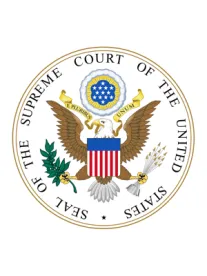In a unanimous (8-0) opinion authored by Justice Sotomayor, the U.S. Supreme Court held that an Arkansas state law regulating rates at which pharmacy benefits managers (PBMs) reimburse pharmacies is not preempted by ERISA. (Justice Barrett took no part in the consideration or decision of the case.) While most people would not think of ERISA preemption issues as affecting their daily lives, the Court’s opinion could have greater implications than one might imagine given that at least forty states currently regulate some aspect of PBM activities, and the significant impact PBMs have on the cost of pharmaceuticals.
Background
PBMs serve as intermediaries between drug purchasers, such as group health plans, and drug wholesalers and manufacturers. They negotiate rates with local pharmacies on behalf of their customers, the drug purchasers; dispense medications directly to consumers through mail service and specialty drug pharmacies; and negotiate rebates with drug manufacturers for certain of the drugs used by their customers.
In 2015, Arkansas passed legislation in response to growing concerns that reimbursement rates set by PBMs were often too low to cover pharmacies’ costs, and that many local pharmacies, particularly rural and independent ones, were at risk of closing. The law also permits an Arkansas pharmacy to refuse to sell a drug if the PBM’s reimbursement rate is lower than the pharmacy’s acquisition cost. In effect, the law requires PBMs to reimburse intrastate pharmacies at a price equal to or higher than each pharmacy’s wholesale cost.
The Pharmaceutical Care Management Association, which represents the 11 largest PBMs in the country, sued the Attorney General of the State of Arkansas, alleging that the state law is preempted by ERISA because it contains a prohibited reference to ERISA.
The Eighth Circuit held that ERISA preempted the Arkansas statute because it both “related to” and “had a connection with” ERISA-governed employee benefits plans. In so ruling, the Eighth Circuit opined that the state law made an “implicit reference” to ERISA by regulating PBMs that administer ERISA plan benefits, and that the law was “impermissibly connected” with ERISA plans because it “governed central matters of plan administration” by mandating an appeal process for pharmacies to challenge PBM reimbursement rates.
The Supreme Court’s Decision
The Supreme Court disagreed. In overturning the Eighth Circuit’s decision, the Supreme Court concluded that the Arkansas law amounted to “cost regulation,” which does not bear an “impermissible connection with or reference to ERISA.” The Court observed that the state law does not “refer to” ERISA because it equally applies to all PBMs, regardless if they manage an ERISA plan. The Court also explained that requiring PBMs to reimburse pharmacies at or above their acquisition costs “does not require plans to provide any particular benefit to any particular beneficiary in any particular way.” Instead, the law “simply establishes a floor for the cost of the benefits that plans choose to provide.”
Proskauer’s Perspective
As noted, at least forty states currently regulate some aspect of PBM activities. The PBM industry has adapted to the growing number of states regulating PBMs by, in some cases, charging customers in certain states more for the same drugs than in other states, to reflect increased costs borne by the PBMs as a consequence of state regulations. The Supreme Court’s decision concluding that states may impose cost regulations on PBMs without fear of ERISA preemption may lead to further state-level regulatory initiatives directed at PBMs, but the ability of PBMs potentially to pass through the costs imposed by such regulations onto their customers may act as a counterweight.




 />i
/>i

